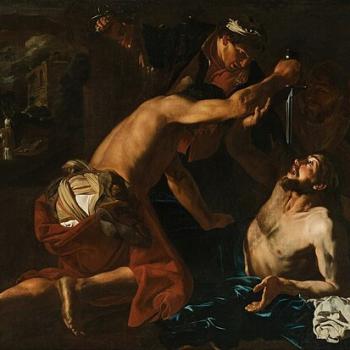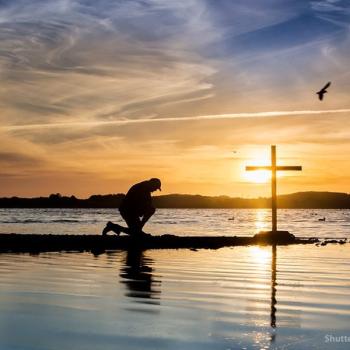
By The Rev. Dr. John T. Mathew
The theme of the 11th Assembly of the World Council of Churches (August 31 – September 8, 2022 Karlsruhe, Germany) is all about how “Jesus’ love moves the world to reconciliation and unity”.
Predictably themes designed for such global events are ornate, even overblown words – here the source of the theme is Jesus’ love. Jesus’ love has power to generate energy, hope, compassion and generosity in this world where we must deal with frightful devastations of the pandemic, violence, war and its survival. The premise must elucidate and identify such issues so that we may flesh out a framework of functional unity. We are passionately social individuals who are called to live together with integrated rapport and resolve.
The groundwork of the Karlsruhe gathering of the 350 member-denominations of the World Council of Churches ideally extends not only to the member denominations of the Reformed and Orthodox Churches but to the whole world. Remember this world is shared by adherents of the Roman Catholic and several other tenaciously faithful denominations with different theological emphases besides hundreds of thousands of followers of Jesus who choose not to feel fenced in an ecclesial paddock. A world that is the household of millions of our fellow-travelers who belong to a variety of ancient and modern faith traditions. Therefore, we must acknowledge that the World Council of Churches, largely prearranged by medieval Reformed theology, managed by Orthodox agenda and reassured by Anglican and Lutheran nurturing in the arena with the rest from smaller denominations perched on the bleachers, does not speak and stand for the global church.
However, the vocation of all followers of Jesus is to credibly proclaim, clarify and live out Jesus’ love that ignites the world to reconciliation and unity. For better or for worse, my peregrination of theological training has been experimenting with the holy and the devil at seven world class divinity schools ranging from the dogmatic evangelical to the freethinking progressives including Roman Catholic theological variants on both sides of the Atlantic. In 1969, within one hundred days of my long haul, I was scared stiff when Andrew Walls confirmed the collapse of European Christendom at a Graduate Fellowship gathering held in Birmingham. He referred to the 1910 World Missionary Conference, or better known as the Edinburgh Missionary Conference which really was not a “world” gathering – it was de facto a refresher gathering of European and American missionaries on furlough with absolutely no one from Africa, South America and one or two from Asia.
World Christianity that emerged on the Day of Pentecost – which is far more than Euro-centric Roman Catholic and Reformed denominations – always excludes most of the ancient Christian traditions. It was for some the beginning of the ecumenical movement now known as the World Council of Churches. Walls also predicted that “the young, the poor and the women” will lead the church in the next five decades.
In 1910 well over 80 per cent of those who professed Christianity lived in Europe and North America and now 80 per cent of those who practice Christianity live in the southern continents of Africa, Asia, Latin America and the Pacific. The center of gravity of the global church has shifted from the north and west to the south and the east.
Unmindful of this new reality, Wilfred Cantwell Smith once made a shocking comment, “When I left Christendom (meaning Canada!) in 1943 to teach in India….”. I questioned him, “You left Christendom? You don’t leave Christendom. You perhaps left the Constantinian Christendom and arrived in an older Christendom, or better, reign of the Messiah founded by Apostle Thomas!”.
First, a solid majority of the followers of Jesus of Nazareth who live, move and have their being breathe not for all intents and purposes within the mainline Reformed-Orthodox paddock manoeuvred the World Council of Churches and the titanic Roman Catholic denomination as well as the colossal masses of umpteen denominations from Pentecostal to evangelical and charismatic groups all across the globe.
On the Asian ecumenical landscape of 20th century ecumenism in its early days we had trailblazers such as M.M. Thomas, D.T. Niles, Juhanon Mar Thoma, Paulos Mar Gregorios and Ninan Koshy. Since its initiation soon after depression of the Dirty Thirties, violence and war in the following decade, this broken splinter of the global church reflected on human proclivity towards turmoil, hope, light, renewal, freedom, life, creation, joy, transformation, justice and peace. Never ever the virtue of love!
This time theme is ‘Jesus’ love’ or Christ’s love with an add-on Hellenistic shimmer. The church is like Noah’s Ark: ‘if it weren’t for the storm outside no one could stand the stink inside’! So much hatred, nativism, suspicion, xenophobia, insensitivity, racism, for the bigoted right everything is ‘woke’ or be mindful of injustice in the society; that’s why the 11th Assembly dared to invite the world to investigate and evaluate the love of Jesus that might jubilantly propel us to re-examine and seek forgiveness for our inhumanity and achieve that oneness or unity between Jesus and the One who sent him to heal our divisions. Well, this movement formally never ever attempted to enlarge on ‘love’ and finally it took more than the proverbial ‘three score and ten’ years to recapture and reflect on Jesus’ love!
In the mid-1970s, the postgraduate class of Mission Studies or Missiology at Saint Paul University, one of our avant-garde assignments was to help design an offering called Ecumenism. At this Roman Catholic seminary, for both our faculty and my classmates, imposingly the theological postulation called ecumenism was already taken care by Lumen gentium, Latin for “Light of the Nations”, the dogmatic constitution on the church circulated by Pope Paul VI on November 21, 1964.
As an ordained clergy in The United Church of Canada among Roman Catholics, I became too conspicuous in the Roman Catholic paddock. I tried to explain the extent of ecumenism, derived from οἰκουμένη (Greek) as an exigent interdenominational concern, vision and vocation of the “whole inhabited earth” for all followers of Jesus established recorded in the Gospel according to St. Matthew (24:14) which is reiterated in Ephesians 4:3. When they realised that I wasn’t elated being pigeonholed as ‘Non-Roman Catholic’, I was elevated as a ‘Reformed minister’. Finally, they were befuddled that I was far more than ‘reformed’ with my first-century Apostle Thomas pedigree. In order not to rock the boat, I was offered a generous scholarship gingerly as a reconciling remedy!
Having had an opportunity to serve on the Interchurch-Interfaith Committee of The United Church of Canada for almost two decades and represent the denomination at local, national and global gatherings of ecumenism and dialogue with other faith traditions, I do not have a huge glorification for ecumenical efforts. At the 2013 Busan assembly, it was hilarious to watch jet-lagged delegates and visitors of all ages and colours strolling along – most of them did not get an opportunity to say a thing except to move from one gathering to the next. I was invited to preach at a large congregation where thousands of local people and the delegates gathered to worship. Therefore, church unity realistically is an illusion where people meet to renew their friendships and exchange business cards.
When Pope Francis became the head of the Roman Catholic Church, he reminded his bishops: Espouse your community, be profoundly bonded to it! I beg you, please, to stay among your people. Avoid the scandal of being ‘airport bishops”. In spite of the work of ‘airport ecumenists’ doing their endless jaunts over the past seven decades, the divisiveness between different denominations remains the same.
Jesus had a coterie of disciples who hardly agreed on anything while they followed his footsteps for three years. The Gospel narratives offer us several occasions when Jesus castigated them overtly and covertly. For example, the impetuous Peter and his shenanigans. Then the sandbagging brothers: John and James. Judas – that unique prodigy who represents mercenary televangelists, pastors, patriarchs, popes and church bureaucrats. Finally, a meekly inquisitive but cheekily honest Thomas. Such muddled up leaders have always been in and around the church. Many generations of disciples carved nations, empires, communities, and even families up over the past two millennia.
The great East-West schism of 1054 CE did not allow Constantinople or Rome to be the command post of the European Church. The older churches in Alexandria, Jerusalem, Istanbul (former Constantinople) and Malabar flouted the 16th century reformation as a family feud between the northerners and southerners – that spawned scores of rival communities. Such feral rivalry in Europe metastasised the ministry of the global church.
Shankara’s Advaita creed of unity of the supreme being and the human soul corroborated in the Gita is helpful to figure out what unity is all about. Advaita or non-dualism is the negation of dvaita or dualism. Therefore, all humans are connected. It is weird and wonderful that the 21st century humans needed a lethal virus to bring us all together – summoned all people, great and small, rich and poor, free and slave (Revelation 13:16) – instead of fighting like cats and dogs, work in partnership in order to pool our resources towards healing of all 7.8 billion plus living, breathing brothers and sisters on this fragile planet.
Centuries later, a few historic examples might help us deduce that many church schisms did not happen over ecclesial or theological issues. Would such knowledge help us to work towards unity?
How did Catherine of Aragon or her sister-in-law play a more shrewdly vital role in the formation of Church of England than Henry VIII? The king was engrossed to have a male heir to carry on his throne. Catherine couldn’t help; he wanted Pope Clement to grant him a divorce from Catherine in order to marry Anne Boleyn, widow of his late brother Arthur. Pope Clement would not annul his marriage with Catherine; therefore, the esteemed Fidei Defensor “Defender of the Faith” of the Roman Catholic church, who snubbed the arguments of Martin Luther, ceremoniously terminated his relationship with it and established the Church of England to become the Supreme Head of the Church of England! The king closed the monasteries and claimed their substantial property.
Now a royal household issue led to a schism with Rome and we are asked to pray for the unity between the Roman Catholic and Anglican traditions. Therefore, the deduction is that there was no theological issue in this schism except the governance.
Then there is the interesting epic love story where a disenchanted monk fell in love with Katharina von Bora, a refugee nun exasperated with her life in the cloister who escaped with the help of a fish merchant from the convent.
Certainly, their revolt against Roman tutelage was not all that prominent before they met and married. Subsequently Luther construed that “his marriage would please his father, rile the pope, cause the angels to laugh, and the devils to weep.”
Would it be ever possible to have a hold-no-punches version theological perspectives on quintessential issues of our heaps of denominations so that we could have a candid discussion on unity? Therefore, Church History 101 makes us wonder whether Reformation, the 16th century religious movement, was just an ecclesial hiccup in Europe which was ignored by most ancient Churches.
The embers of division, dispute, distrust, conflict, cynicism and hostility boiled with rage and sizzled within the hearts and minds of those who intently walked behind Jesus in the Galilean deserts. Jesus had revealed who he was to his committed listeners and was before long to go to the cross, to conclude the liberating vocation that God had resolved for him to perform. Jesus prayed they may be (ὦσιν ) one (ἓν) as (καθὼς ) we [are one] (ἡμεῖς). The postulation is: Jesus’ disciples need to become one, the way God and Jesus was. Therefore, Jesus does not propose or compel a somatic sameness or homogeneity.
Christian unity, for which many of us annually pray for one week, is almost a mirage. Not long ago, on a bright sunny day I was out for my walk by the Mississauga Valley Trail when I noticed a couple in front of me. At first, I thought they were walking towards me and I should mask up. As I kept walking, they appeared to be moving ahead of me. I have been watching the ecumenical spectacle unfolding for most of my life. Over the years, I met and listened to world class ecumenists, helped design an academic offering in ecumenism and I myself attended national and international ecumenical gatherings.
In spite of our tendency to construe many types of unity such as an admonition (nouthetic), theological (scriptural), ecclesial (presence of God in and through Jesus) and academic (wind-swept discipline of study), we may decide on our preference. The earliest communities of faith in Jerusalem, Alexandria, Cyprus, Caesarea, Carthage, Corinth, Ephesus, Smyrna, Sardis, Laodicea etc. never self-effacingly figured out – believed, confessed and celebrated a commitment of the oneness alluded to in Gospel narrative nor by the 21st Century denominations whether ancient or modern. Therefore, ecumenism woefully has relegated to an academic exercise petrifyingly debated in the theological schools or an annual gathering to enjoy sips and scones by the local church communities. Therefore, how on earth could we take the ecumenical pitches conceived in Geneva, Kottayam, New York or Edinburgh positively? Following the French Revolution, one politician was asked what kept him busy during the Revolution. His answer: ‘I survived’. Retrospectively, that is what I think of my 45 year-long ordained ministry and my engagement with ecumenism and Interfaith-Interchurch participation at local, national and global levels in India, Scotland, Canada and New Zealand.
Thank God, we have survived.
However, the relay race of ecumenism continues. Relay race consists of a set number of stages, usually four, each leg run by a different member of a team – each runner finishing one leg must pass on a baton to the next runner while both running in a marked exchange zone. Not all denominations follow the rules which make it difficult to run the race. Pope Benedict – the first pope in 600 years to step down – admitted that he didn’t have the vigour to effectuate a roaming rigidity of the chore and retired in 2013.
Every follower of Jesus ought to be driven by a down-to-earth faith in the essential unity of disciples of the One who keeps calling us; the potential and promise of the universal community of faith called the church; the inescapability of finding the middle ground and looking for commonalities; and most of all, the power and presence of the Holy Spirit to heal our brokenness and conflict and bring about genuine experience of oneness in Jesus. Reconciliation has been the famed term used to combat racism and dismantle Apartheid. The system of Apartheid has been removed; however, it still is alive and active.
Racism is more virulent than ever especially with the blessings of poor Europeans in all Europe as well as in former colonies. Indeed, it is a hope-filled process; not an end but a means to an end. Ideally, it ought to be “reconciliation towards unity”, which suggests that there existed an uneasy unity before; however, it is broken down and now we need to salvage it. For some, by and large, reconciliation is a sacrament of restoration where the faithfully ashamed offender enjoys communion with the community of faith and the Holy One.
Each follower of Jesus would benefit from wholeness and unity; each community of faith and each generation must identify and comply with a desire for unity with others and reconciliation that is meaningful. There is no one absolute template or example of theological and spiritual consummation on reconciliation and unity.













